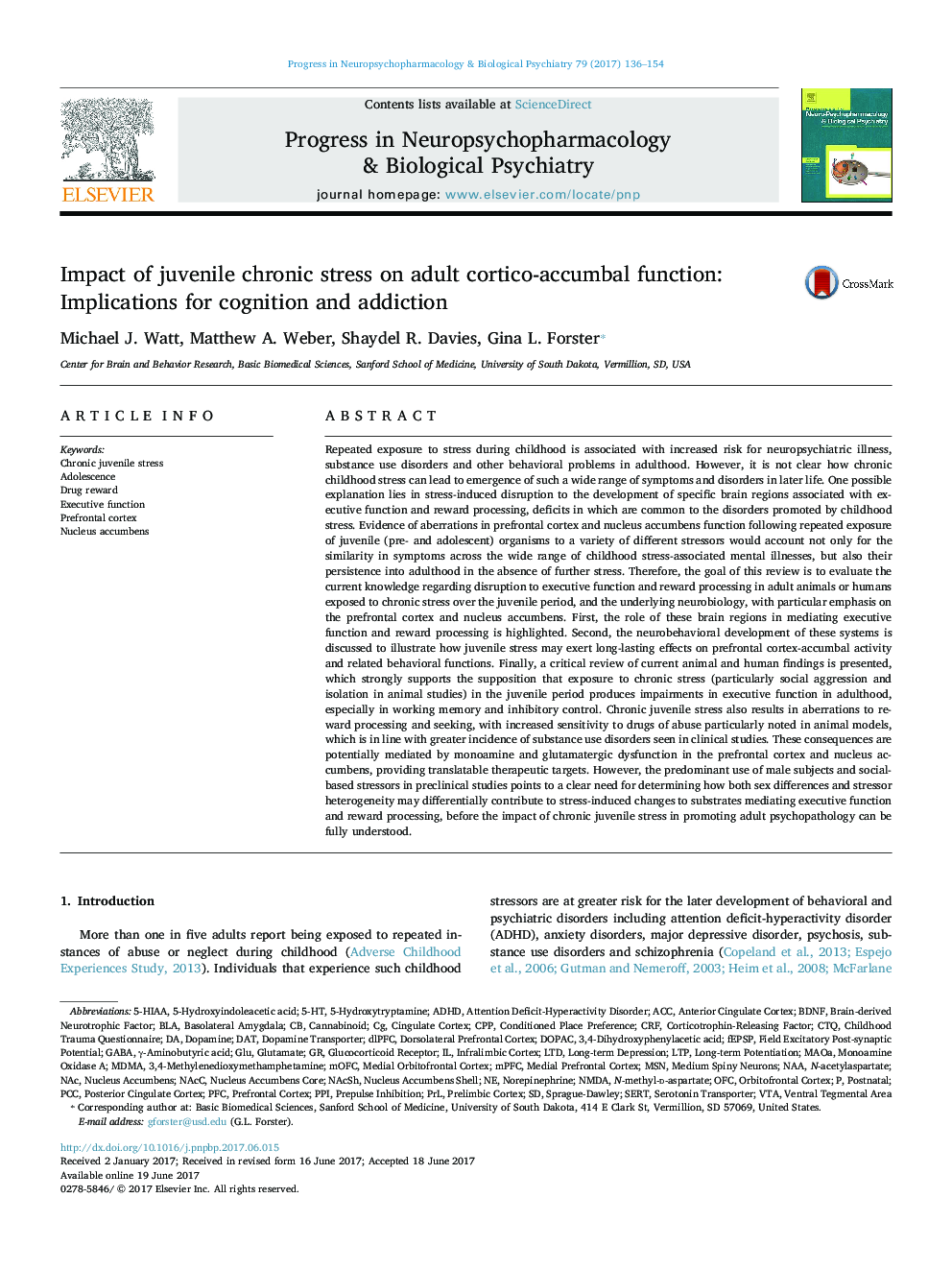| کد مقاله | کد نشریه | سال انتشار | مقاله انگلیسی | نسخه تمام متن |
|---|---|---|---|---|
| 5557952 | 1403191 | 2017 | 19 صفحه PDF | دانلود رایگان |
- Chronic juvenile stress is associated with executive function deficits in adulthood.
- Deficits are mediated by lasting stress-induced alterations to prefrontal cortex.
- Increased drug sensitivity also seen in adults exposed to chronic juvenile stress.
- Greater accumbal responsivity and less top-down control can explain such outcomes.
- Normalizing cortico-accumbal activity may reduce lasting effects of juvenile stress.
Repeated exposure to stress during childhood is associated with increased risk for neuropsychiatric illness, substance use disorders and other behavioral problems in adulthood. However, it is not clear how chronic childhood stress can lead to emergence of such a wide range of symptoms and disorders in later life. One possible explanation lies in stress-induced disruption to the development of specific brain regions associated with executive function and reward processing, deficits in which are common to the disorders promoted by childhood stress. Evidence of aberrations in prefrontal cortex and nucleus accumbens function following repeated exposure of juvenile (pre- and adolescent) organisms to a variety of different stressors would account not only for the similarity in symptoms across the wide range of childhood stress-associated mental illnesses, but also their persistence into adulthood in the absence of further stress. Therefore, the goal of this review is to evaluate the current knowledge regarding disruption to executive function and reward processing in adult animals or humans exposed to chronic stress over the juvenile period, and the underlying neurobiology, with particular emphasis on the prefrontal cortex and nucleus accumbens. First, the role of these brain regions in mediating executive function and reward processing is highlighted. Second, the neurobehavioral development of these systems is discussed to illustrate how juvenile stress may exert long-lasting effects on prefrontal cortex-accumbal activity and related behavioral functions. Finally, a critical review of current animal and human findings is presented, which strongly supports the supposition that exposure to chronic stress (particularly social aggression and isolation in animal studies) in the juvenile period produces impairments in executive function in adulthood, especially in working memory and inhibitory control. Chronic juvenile stress also results in aberrations to reward processing and seeking, with increased sensitivity to drugs of abuse particularly noted in animal models, which is in line with greater incidence of substance use disorders seen in clinical studies. These consequences are potentially mediated by monoamine and glutamatergic dysfunction in the prefrontal cortex and nucleus accumbens, providing translatable therapeutic targets. However, the predominant use of male subjects and social-based stressors in preclinical studies points to a clear need for determining how both sex differences and stressor heterogeneity may differentially contribute to stress-induced changes to substrates mediating executive function and reward processing, before the impact of chronic juvenile stress in promoting adult psychopathology can be fully understood.
Journal: Progress in Neuro-Psychopharmacology and Biological Psychiatry - Volume 79, Part B, 3 October 2017, Pages 136-154
